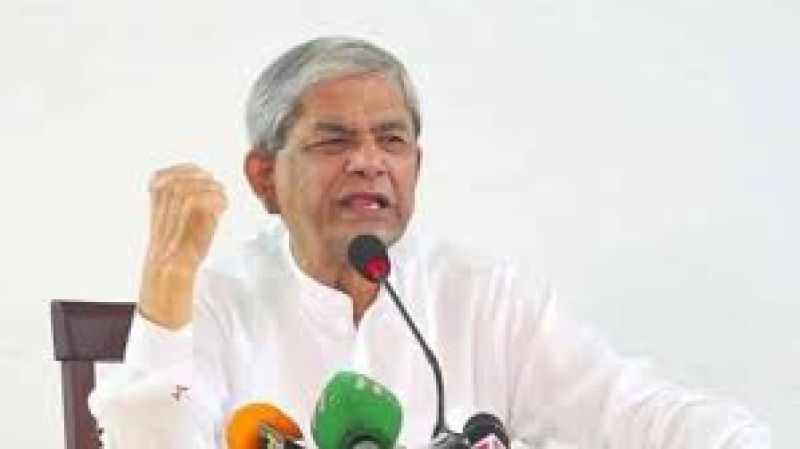- Death toll from central Israel strike rises to 5 |
- DSE sinks 138 points on broad sell-off; CSE also tumbles |
- Inside story of a roommate murder after quarrel in Dhaka |
- Jamaat condemns Khamenei’s killing, holds protest rally in Dhaka |
- Iran to pick next supreme leader in ‘one or two days’ |
Fakhrul Calls for Reforms to Ensure Credible Elections

BNP Secretary General Mirza Fakhrul Islam Alamgir
BNP Secretary General Mirza Fakhrul Islam Alamgir has called for the interim government to focus solely on electoral, administrative, and judicial reforms to ensure a credible national election within a sensible timeframe.
In an interview with UNB, Fakhrul avoided defining what he considers a "reasonable timeframe" for the current government's tenure but acknowledged that the BNP’s stance aligns closely with recent statements from the Interim Government Chief and the Army Chief.
He warned that further delays in holding elections could worsen existing political tensions and provide opportunities for those connected to the former regime to disrupt the process.
This is the second installment in a three-part series exploring Fakhrul’s insights during a challenging period for the BNP, marked by widespread arrests, the imprisonment of party Chairperson Khaleda Zia, and the absence of Acting Chairman Tarique Rahman during the Awami League's 16-year governance.
Fakhrul discussed various issues, including the timing of the upcoming national election, referencing comments made by Army Chief General Waker-uz-Zaman. The General has pledged support to the interim government to facilitate necessary reforms following the ousting of Prime Minister Sheikh Hasina, aiming for elections within the next 18 months.
Additionally, Chief Adviser Professor Muhammad Yunus indicated to IMF Managing Director Kristalina Georgieva during a meeting at the UN that the election date would be announced once a consensus on reforms is achieved and the voter list is prepared.
Regarding the Army Chief’s 18-month timeline, Fakhrul described it as a personal view reflecting a desire for timely elections. He emphasized the urgency, stating, “The sooner the election, the better for the country. However, we face significant challenges due to the previous government's mismanagement. Without addressing these issues, organizing a fair election will be difficult.”
Fakhrul expressed that while he and the interim leaders share similar views on election timing, he deliberately refrained from giving a specific period. “A reasonable timeframe is essential, but it must not exceed a logical limit. Delaying elections will only escalate existing problems and provide room for those resistant to change to exploit the situation.”
He criticized the Awami League for creating a "deep state" that has tainted every aspect of governance, complicating the identification of suitable leaders for institutional reform. “The interim government has begun necessary reforms, and we proposed a 31-point reform agenda two years ago.”
The BNP leader noted that the interim government has established six commissions led by qualified individuals to implement key reforms. “However, it’s vital to engage with the public and political parties to understand their perspectives and needs.”
He underscored the importance of political consensus on state reforms, as these would need to be incorporated into the constitution post-election. “The interim government should prioritize reforms in the electoral process, administration, and judiciary to foster a fair electoral environment.”
Once a new Parliament is formed, he indicated, remaining reform proposals could be introduced by the ruling party. “If we occupy the treasury bench, we will advocate for these changes. The BNP aims to form a national government, uniting parties that have opposed the Awami League regime to ensure representation of diverse opinions.”
Fakhrul emphasized the potential for coordinated national development through such a government, a model proven effective in other countries.
When discussing the structure of the proposed national government, he outlined two possibilities: including representatives from participating parties or involving those who joined the movement against the current regime. However, he dismissed the feasibility of collaborating with the Awami League, labeling it an anti-state force in the eyes of the public.
On the topic of Jamaat-e-Islami's inclusion in the national government, Fakhrul stated that the BNP and allied parties would consider it if Jamaat expresses interest, adding, “I’ll reserve my comments for a later time.”

